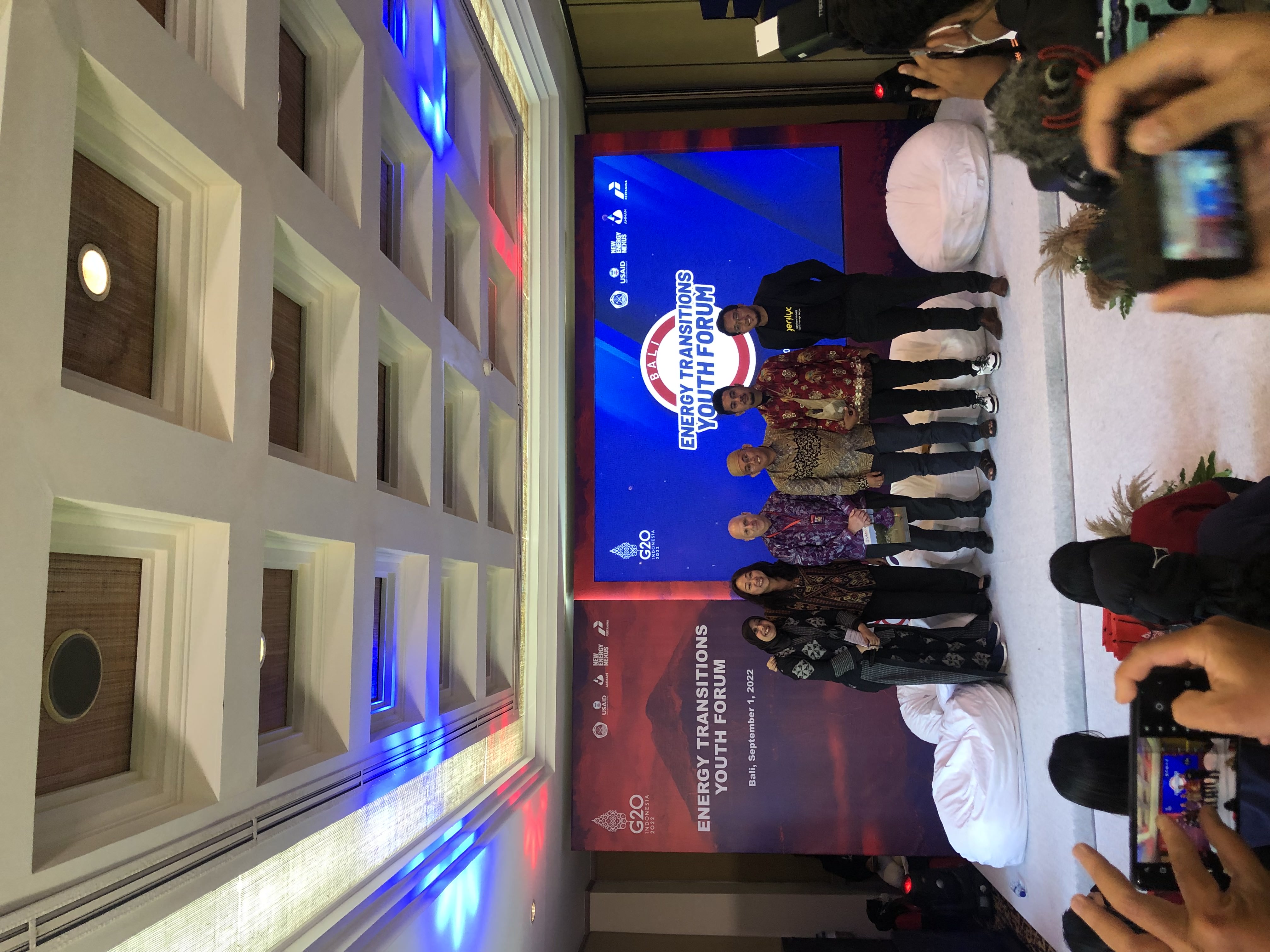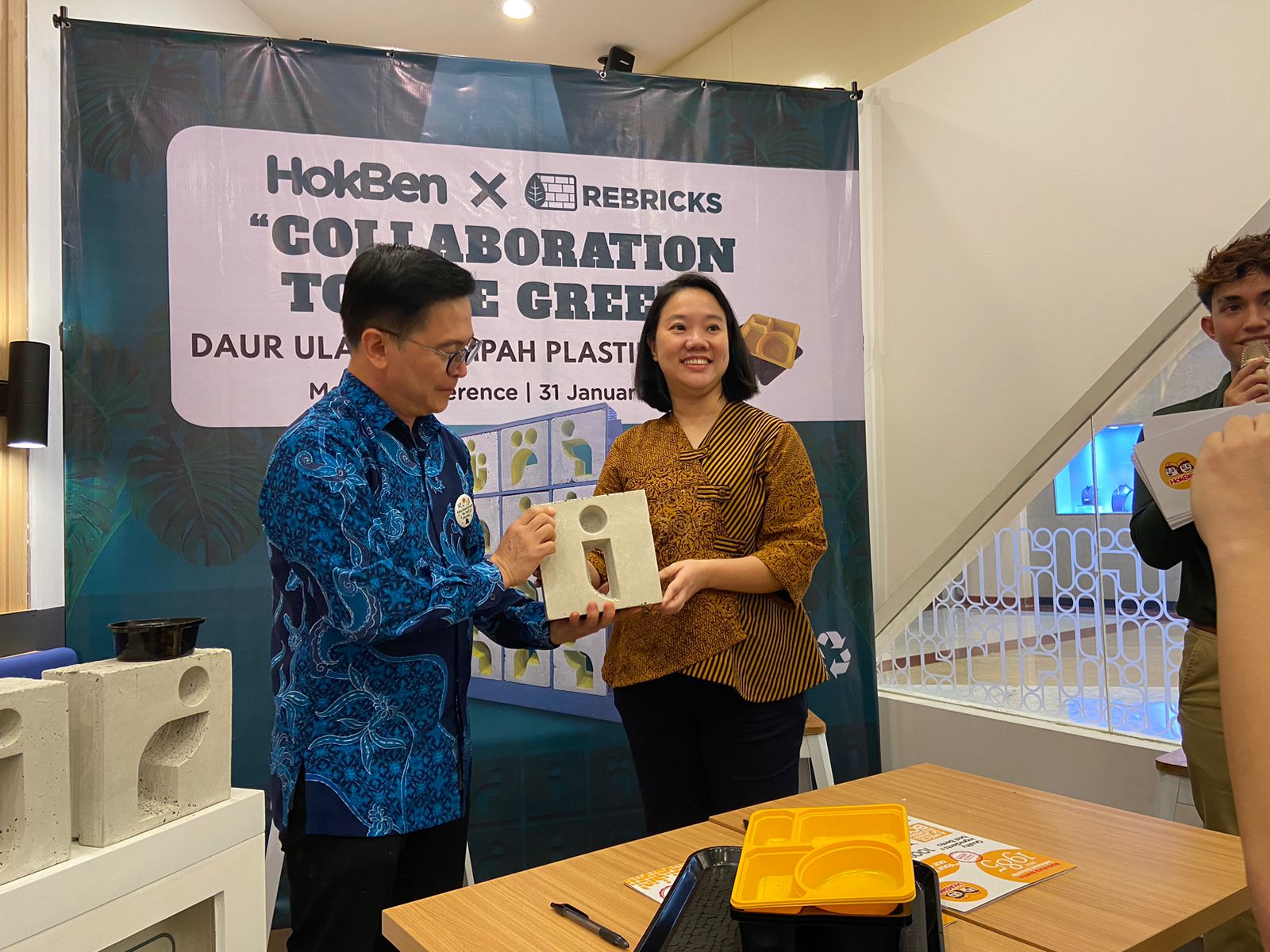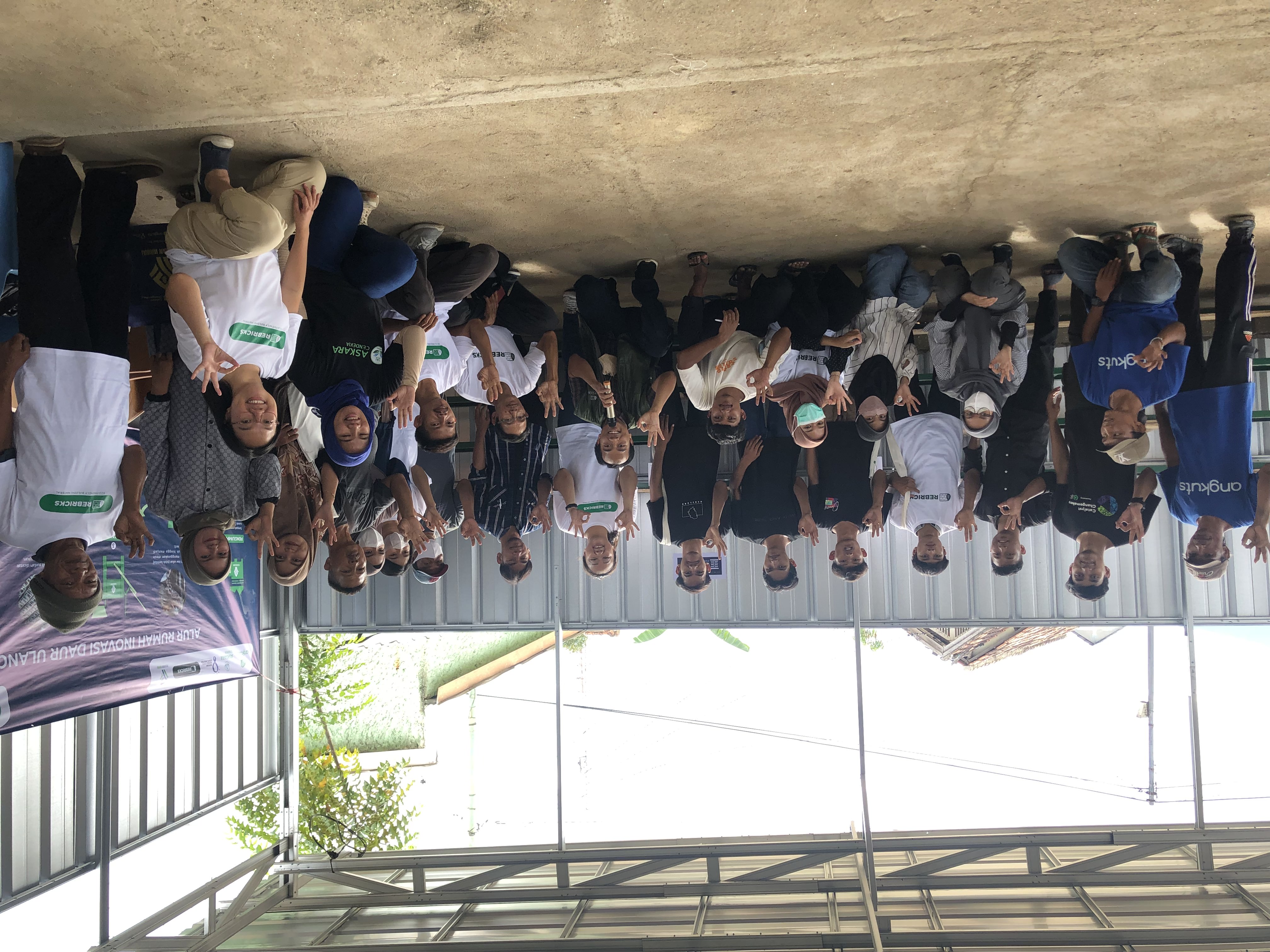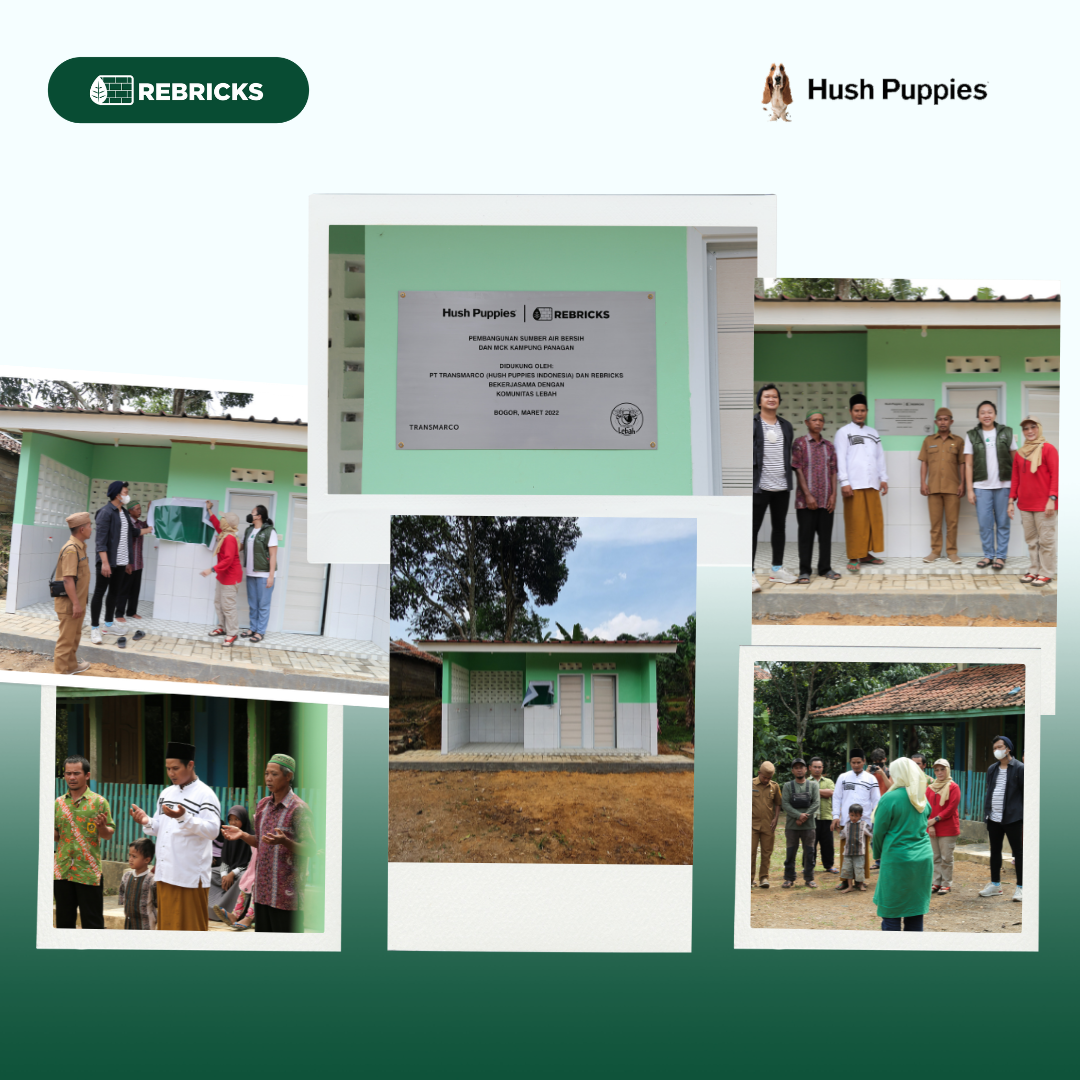Detail Activities

Rebricks: Two women remaking the construction industry with recycled plastic
Being chosen as one of three top startups by the Circular Innovation Jam (CIJ) organised by The Incubation Network is a sure sign that Rebricks, and its co-founders Ovy Sabrina and Novita Tan are on the right track.
Rebricks is an Indonesia-based company that recycles plastic which is generally rejected from traditional recycling systems, turning it into strong, environmentally friendly building materials. Multi-layered plastics like the ones used to make shampoo bottles and food wrappers, for example, are tough to break down for recycling.
Indonesians Sabrina and Tan met during college and became fast friends and business partners, launching several successful businesses together. Over the years, they became more concerned about environmental issues, and the pair began to pivot towards creating a more environmentally friendly business.
“Maybe because we’re mothers, we are more concerned about future generations. Women care about their children and don’t want their kids to grow up surrounded by trash or a destroyed environment. We want to create a healthy, sustainable world for future generations,” explained Sabrina and Tan.
With assistance from Sabrina’s family, which had been in the construction industry for over 30 years, the idea of creating building materials from waste plastic was conceived.
For almost two years, Tan and Sabrina researched what type of materials needed to be dealt with, how they could be transformed into items like paving blocks and created the technology to do it.
“If it took us more than one year for product development, so be it,” explained Sabrina.

“We wanted Rebricks to be impactful. We turned down many business opportunities that didn’t serve our mission many times, but that just made us super focus on developing Rebricks’ product and creating the impact we envision.”
Now Rebricks can recycle the “waste from 88,000 [plastic] sachets per day and 33 million sachets into building materials per year,” according to the co-founders.
But this early success hasn’t made Sabrina and Tan complacent.
“We’re still on the way to be truly successful. Nonetheless, we think what makes us different is our strong principle in driving Rebricks into a responsible recycling business that aims to solve problems instead of creating more problems.
“Driven by this vision and idealism, we always prioritise our product quality and impact above all else,” they explained.
While the brand is well on its way to making a significant impact in the world of recycling waste plastic and helping the environment, the road wasn’t always perfectly smooth, said Sabrina and Tan.
The pair say they didn’t necessarily encounter any negative issues, but admit that they did have to overcome several challenges as women working in a male-dominated industry.
“We are dealing with a lot of waste pickers and collectors who are mostly male. And in Indonesia, male-female relationships between strangers are a bit hard to build, especially when you don’t have mutual connections.

“But in the end, we managed to cross that bridge and build a close relationship with them,” explained Sabrina and Tan.
“There has been some negative sentiment towards females working in the ‘dirty’ sector, but we never took it seriously.”
“We also lead the workers - who are all male - who make the paving blocks, and it was a little bit tricky in the beginning to direct them. Understandably, the building materials industry is a male world, but we came so far to make them listen to us.”
It’s interesting to note that Tan and Sabrina were not the only all-female team in the CIJ innovation activity.
Of the 400 participants in this year’s programme, over half were women, many from communities as remote as the Sumatran region of Aceh and island of Flores, Indonesia, and the “coffee land” of Chikmagalur, India - all able to be involved as 2020 was the first virtual version of the CIJ event. Of the finalists this year, 51 per cent were women.
“Being a part of the CIJ innovation sprint by The Incubation Network really helped to strengthen our foundation and to build our confidence as entrepreneurs,” said Tan and Sabrina.
“We learnt from a lot of fantastic mentors and were encouraged to think differently. Not to mention, we were in good company with over half of the participants being female! It’s about time that women entrepreneurs take the stage, including entrepreneurs for environment businesses.”
As Sabrina and Tan clearly show, the world needs more female entrepreneurs to kick-start the sorely needed new businesses that can make a difference in dealing with environmental issues like plastic waste.
According to Stephanie Arrowsmith, head of the Circular Innovation Jam team and Director at The Incubation Network, “60 per cent of all plastic pollution in the ocean comes from five Asian countries. This problem needs tailored solutions which consider local economics, business hurdles and cultural nuances.”
Tan and Sabrina are continuing the brand’s expansion into the market, and also plan to increase production capacity.
“The financial and technical support can help accelerate that, with the CIJ cash prize we plan to allocate 85 per cent to equipment - hollow block and mixing machines, and new moulds, boards, waste sorting equipment - and 15 per cent on marketing,” Sabrina shared.
The pair are also continuing to research how to develop and expand their range of building materials, looking at new product lines like tiles, roofing and hollow blocks for building walls.
“We’re still on the way to be truly successful … [but] in the long-term, we are focused on scaling up Rebricks throughout Indonesia.”
For more information about Rebricks, go to rebricks.id, and follow the brand on Instagram at @rebricks.id






